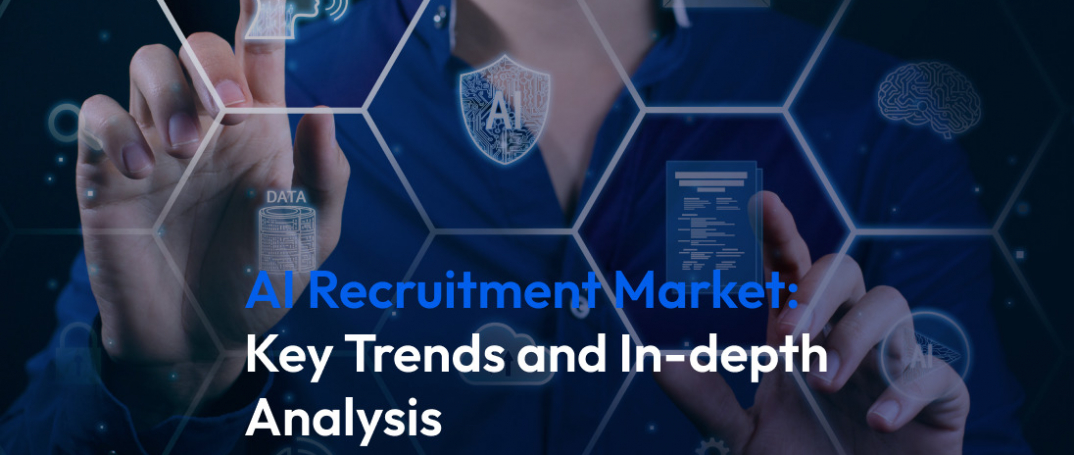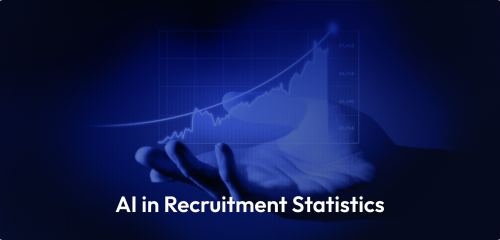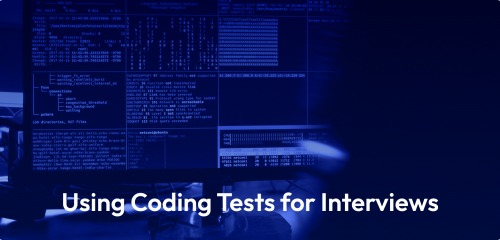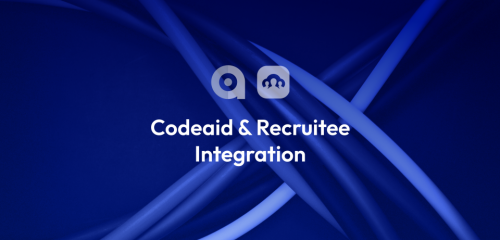From optimizing search algorithms to personalizing user experiences, artificial intelligence is now poised to transform how we scout and secure tech talent.
Currently, the traditional hiring cycle spans 23 days. However, AI is set to reduce the average time-to-hire, offering smarter matchmaking between candidates and job roles.
But how is AI changing the game for recruiting on a global scale? Let’s unpack all about the AI recruitment market, key market trends, how intelligent tech is reshaping the hunt for top-tier tech professionals and how to adapt.
Key Takeaways
- AI technologies significantly enhance efficiency in the recruitment process, offering fast candidate sourcing, automated interview scheduling, more precise candidate screening and more.
- The AI recruitment market is rapidly evolving, with new technologies emerging, necessitating ongoing adaptation and training for recruiters to stay ahead.
- AI recruitment tools help reduce unconscious bias, leading to a more diverse and inclusive candidate selection.
- Navigating the AI recruitment landscape requires awareness of legal and ethical implications and recognizing the need for balanced human judgment in AI-augmented processes.
Brief Overview of the AI Recruitment Market
In the fast-paced recruitment industry, the AI recruitment market is a rapidly growing sector where cutting-edge technology meets talent acquisition.
AI recruitment solutions combine machine learning, natural language processing, and predictive analytics to enhance and streamline the hiring process.
Driven by the relentless pursuit of efficiency, it addresses the pressing need for quicker, more accurate candidate vetting and matching. This helps recruiters find top talent while reducing time-to-hire and cost-per-hire.
AI Recruitment Market Analysis
The AI recruitment market is constantly developing, with a lot of promise for expansion in the next decade. Here’s a closer look at the numbers:
AI Recruitment Market Size
As organizations increasingly recognize the efficiency of AI in streamlining recruitment processes, the AI recruitment market is experiencing robust growth.
Valued at $630.5 million in 2022, it’s projected to grow to $839.5 million by 2028, with 63% of companies investing or planning to invest in AI recruitment solutions. The AI recruitment market growth is fueled by the push for automation, the need for data-driven decision-making, and the desire to enhance candidate experience.
AI Recruitment Market Share
AI recruitment tools are no longer niche products but mainstays in the HR tech stacks of forward-thinking companies.
The market share is distributed among several key players, each offering innovative solutions—from chatbots that improve candidate engagement to sophisticated algorithms for unbiased screening.
These include:
- SmartRecruiters
- TalentMind
- IHireVue
- Jobvite
- Mya Systems
As large enterprises adopt these tools, market share shifts, signaling a growing confidence in AI’s role in recruitment. Moreover, the rising demand from small and medium-sized businesses indicates that AI recruiting tools are becoming more accessible.
How is AI Changing the Game for Recruiting?
The recruitment sector is undergoing a profound transformation as AI redefines how companies discover, assess, and onboard talent.
Here is how AI reshapes every step of the hiring process:
1. Candidate Discovery and Sourcing
In today’s recruitment landscape, pinpointing the ideal candidate is challenging as roles become increasingly specialized, demanding a unique blend of niche skills and specific experiences.
Luckily, AI sourcing tools streamline this complex process with precision. They scour databases and online profiles, increasing efficiency as they engage candidates through intelligent interactions.
With an increasing number of companies using AI to filter candidates from the web, the traditional approach to sourcing is rapidly evolving.
2. Candidates Testing
Candidate testing through AI tools is revolutionizing the recruitment process by leveraging predictive analytics. This allows AI to determine a candidate’s potential for success in a role.
However, AI doesn’t just assess. It learns from data over time, predicting with precision which candidates will excel.
This capability transforms the selection process from a game of chance to a data-driven decision-making exercise, where potential is quantified and harnessed effectively.
3. Skill-based Screening
About 63% of recruiters believe AI can help them make the screening process more efficient.
But what role does AI play at this stage of the hiring process?
AI’s skill-based screening helps recruiters understand whether a candidate’s qualifications match the job role requirements. With AI, the screening accuracy is refined, ensuring only the most suitable candidates pass through the initial phases of hiring.
Additionally, early adopters witness a staggering 75% reduction in screening costs, proving that AI in recruitment is not just a trend but a cost-cutting staple in modern recruitment.
4. Interview and Grading Automation
Interviews are getting a tech makeover.
AI can interpret subtle cues in body language, tone, and facial expressions, offering insights that go beyond spoken words. They can also generate skill-based questions tailored to the position, ensuring that each interview probes the areas most relevant to job performance.
This level of automation allows for consistent grading across all interviews, minimizing personal biases that can cloud human judgment. Moreover, AI can streamline scheduling, follow-ups, and aggregate candidate feedback, freeing recruiters to focus on strategic decision-making and personalized candidate engagement.
5. Employee Onboarding
27% of recruiters already use AI for employee onboarding, and about 42% are just starting to implement AI at these final stages of the recruitment process.
But what makes AI onboarding technology so useful?
A new hire’s first days are pivotal, and AI in onboarding ensures each employee gets a personalized experience, automating mundane tasks and tailoring learning paths.
As HR technology becomes a top investment, onboarding is set to become an AI-driven journey that integrates new hires into the corporate culture seamlessly.
AI Trends in Recruitment
Traditional methods, which once consumed days and substantial financial resources, are being eclipsed by AI’s efficiency.
This technology not only speeds up resume reviews and interview scheduling but also enhances precision and reduces uncertainty.
Let’s look at some of the major AI recruiting market trends that reshape the recruitment landscape:
1. Programmatic Job Advertising
Did you know that by implementing programmatic job advertising, you can reduce your cost per hire by more than 30%?
This savvy approach to job advertising utilizes AI to optimize ad placements across the web.
By analyzing market data and historical ad performance, AI predicts and executes the most effective ad strategies. This ensures that the right job opportunities reach the right candidates exactly when and where they’re most likely to engage.
2. Interview Chatbots
Gone are the days when chatbots merely nudged candidates toward applications. Advanced chatbots are now conducting pre-screenings and scheduling interviews.
These tools are more advanced than ever and can even sustain human-like text conversations to collect comprehensive candidate information. According to an Allegis survey about 58% of candidates say they feel comfortable interacting with chatbots in the initial stages of the hiring process.
The result?
Companies that utilize chatbots have 95% more leads and 40% more completed job applications.
3. Resume Screening
By integrating AI in resume screening, companies are embracing a game-changing approach to talent acquisition. This technology employs sophisticated algorithms, including natural language processing to interpret the rich text data within resumes.
Each candidate is evaluated against a set of employer-defined criteria and then systematically scored and ranked.
This method transcends traditional resume screening’s limitations by eliminating unconscious biases and identifying the most qualified individuals. The unbiased nature of AI ensures a diverse and competent candidate shortlist. Furthermore, studies show that AI-powered screening can reduce the time spent on initial screening by 75%.
4. Interview QA Generators
Interview QA generators are cutting-edge AI tools designed to formulate questions that help recruiters assess a candidate’s fit for a role. Utilizing vast data sets, these tools generate questions based on the role’s requirements and the company’s values, ensuring a tailored and comprehensive interview process.
The benefits are twofold: they not only streamline the creation of interview scripts but also promote consistency and fairness across candidate evaluations.
In practice, businesses leveraging AI for question generation can experience better interview efficiency and easily identify candidates who are not only skillful but also a cultural fit.
5. Recruitment Marketing Software
Recruitment marketing software employs AI to craft compelling job advertisements and develop strong employer branding. These advanced systems analyze and optimize job descriptions to attract the right candidates, utilizing insights from market trends and candidate behavior.
The key benefit of this software is the ability to engage passive candidates through content that resonates, increasing the quality of applicants. Organizations using AI-driven recruitment marketing can increase qualified candidate applications.
By presenting opportunities in a manner that appeals directly to the desired talent pool, these tools are revolutionizing how companies communicate their value proposition to potential hires.
Global AI Recruitment Market
The global AI recruitment market is expected to grow at a CAGR of 6.9% during the period 2023-2030.
The sector is forecasted to experience a significant surge, driven by the need for efficient hiring processes and quality talent acquisition.
Here’s a breakdown of its regional segmentation:
The Americas
In the Americas, the United States leads with pioneering AI recruitment software, which offers sophisticated algorithms for candidate sourcing and screening.
North America, in particular, has seen a substantial uptick in AI recruitment technology use due to its competitive job market. It exhibits the highest adoption rate of AI – about 40% of companies use AI in their recruitment process.
Europe
Europe’s market is characterized by a strong emphasis on GDPR-compliant recruitment tools, with AI solutions providing compliant and bias-free candidate acquisition and management.
With 36% of companies adopting some sort of AI in their recruitment process, Europe has been swift to adopt these technologies, seeking to balance innovation with stringent privacy laws.
Middle East and Asia
The Middle East and Asia are rapidly catching up, with countries like the UAE and Singapore investing heavily in AI for public and private sector recruitment. The focus is on utilizing AI to tap into the expansive, diverse talent pool, with a notable increase of 25% in the use of AI tools for recruitment in the past years.
COVID-19 Global Impact
The COVID-19 pandemic has undeniably accelerated the adoption of AI in recruitment across the globe.
Organizations turned to AI to manage remote hiring and onboarding processes, with 24% of companies reporting the integration of at least one AI recruitment tool since the pandemic began. This shift has underlined the resilience and adaptability of AI technologies in the face of unprecedented market changes.
Source: Market Research Future
Impact of AI on the Recruitment Sector
There are pros and cons to AI in the hiring process, but AI’s ascendancy in the recruitment sector is undeniably a game-changer for both recruiters and candidates.
Let’s break down AI’s impact and examine how it’s reshaping the recruitment landscape from both sides of the hiring desk.
On Recruiters
For recruiters, AI’s influence is profoundly liberating.
About 67% of recruiters believe AI can help them save valuable time.
That’s because AI automates time-intensive tasks like resume screening and preliminary assessments, allowing recruiters to focus on cultivating relationships and fine-tuning their hiring strategies.
AI’s analytics also serve up valuable insights, making recruitment a data-driven arena.
With AI, the reach for talent is global and the matchmaking between job and applicant is sharper, reducing the time-to-hire and improving the quality of each hire.
On Candidates
Candidates experience the benefits of AI through a more personalized and responsive application process.
AI-driven platforms can offer instant feedback, schedule interviews, and even guide candidates to roles that match their skill set. This level of engagement fosters a positive view of the hiring company, improving brand perception.
Moreover, AI’s capacity to strip away biases promises a more equitable hiring landscape, opening doors based on merit rather than background or connections.
However, while AI offers numerous benefits, more than half of all candidates (56%) still believe the final decisions should be made by a human.
How to Navigate the AI Recruitment Market Change?
Navigating the dynamic AI recruitment market requires an understanding of how artificial intelligence is transforming the hiring landscape.
As AI becomes an integral part of recruitment, organizations must stay informed about the latest developments and adapt their strategies accordingly.
It’s about leveraging AI’s strengths while maintaining the human touch that is essential for attracting top talent.
We cover this more in depth on our AI recruiting guide, but here’s how recruiters and hiring managers can steer their organizations towards successful hiring outcomes with AI.
Regulate the AI Hiring Process
To harness AI’s power responsibly, it’s essential to understand the legal and ethical implications. Future-proofing AI-powered hiring means ensuring compliance with evolving regulations and ethical standards.
This includes:
- Ensuring transparency in how AI tools process candidate data
- Understanding how AI influences recruiters’ decisions
- Striking a balance between efficiency and fairness
- Ensuring that AI aids rather than dictates the hiring process
Get Proper Training
Training HR managers and recruiters is crucial for integrating AI into the hiring process effectively. This doesn’t only mean understanding how to operate AI tools but also knowing when to rely on human judgment.
For instance, while AI can screen candidates based on qualifications, recruiters should assess cultural fit and potential for growth. AI is a powerful assistant, but the final decision should always be made with a human touch.
Adopt AI Recruitment Technology
Adopting AI recruiting tools can significantly enhance the efficiency and effectiveness of hiring. Innovative solutions can streamline the process, offering an advanced way to evaluate technical skills and cultural fit.
By leveraging AI tools, companies can ensure they don’t miss out on high-caliber candidates and can manage their recruitment process more strategically. Implementing AI tools should be seen as an upgrade to the recruiter’s toolkit, not a replacement.
Conclusion
As we stand on the brink of a recruitment revolution, the AI recruitment market is poised for unprecedented growth. The future is bright with the promise of AI streamlining hiring processes, enhancing candidate experiences, and opening new avenues for talent acquisition.
Yet, challenges such as ethical considerations, data privacy, and maintaining the human element amidst automation remain. It’s a future that calls for recruiters to engage with technology mindfully, using tools like Codeaid’s AI Interviewer to complement their expertise.
Harness the power of AI and elevate your hiring process with Codeaid’s innovative solutions—where technology meets talent.



